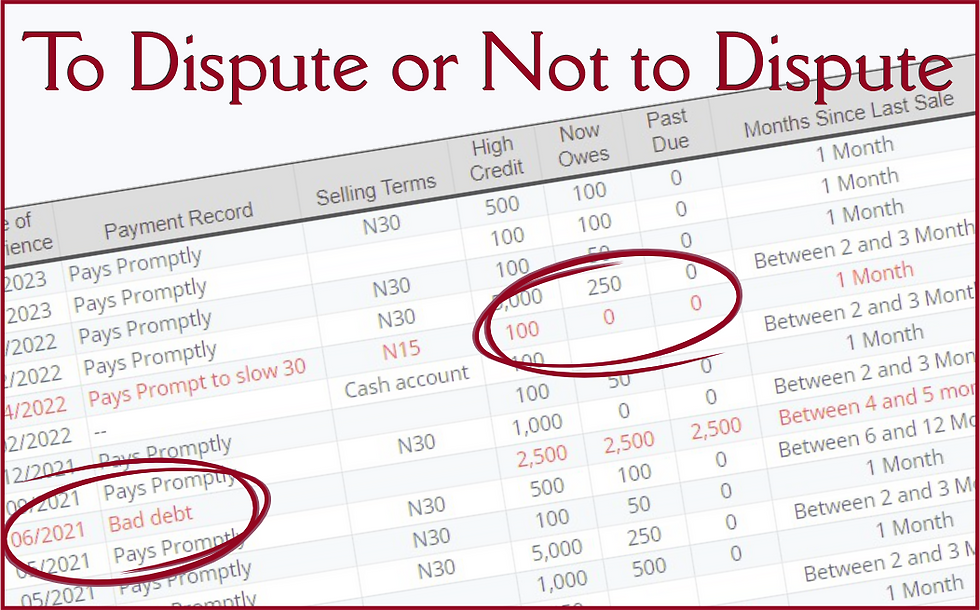Is Your Creditbuilding Aggressive Enough?
- Joy Greenwood
- May 23, 2017
- 3 min read
Updated: Feb 3, 2022
Are you making progress in your quest for better business credit? If your company has paid for any products or services in the past 12 months, are those payments reflecting in your corporate credit report? Have you already achieved solid scores and ratings? Do you have to chase new credit, or are creditors coming to you with offers and options?

By and large, business credit is based upon reliable data, positive payment history, and a proven capacity to handle debt. If you do it right, strong credit scores are a beneficial bi-product of your normal day-to-day processes. But just like most customers don't accidentally chose to do business with you, most of your truly beneficial credit isn't just going to magically find its way into your credit file. Sometimes, success requires you to take an aggressive approach to (literally) every financial thing your business does.
TIPS FOR AGGRESSIVE CREDIT-BUILDING
Every time you open an account with another business to purchase products, services, or funding, do it in the business name. Every transaction has the potential to boost scores and ratings by up to 90%, but only if it is associated specifically to your business and not to you personally.
Eliminate point-of-sale purchases. Even if you are standing in the store and looking at what you want to buy, go online, set up an account, put the item into the shopping cart, choose to "pick up in-store", and make your purchase. Even prepaid purchases can help to build up payment history.
Separate business buys from personal purchases by carrying a separate debit card with you that is linked to your business bank account. Don't blow everything you've done to separate business from your personal by paying for business purchases using your personal debit or credit cards.
Invoices should be sent to the business address and paid using the business debit or credit card. Even if your vendor or supplier is just a small mom-and-pop, be sure they provide an invoice for the purchase (not just a receipt) and that the invoice is in the business name and address.
Shipped items should always be sent to the business address. Shipping a purchase to your home simply for convenience could keep you from being able to use that transaction to benefit your business credit report.
Synchronize the business name and address. Like a puzzle piece fitting into an available slot, this information needs to be consistent across all platforms and match to your D&B report exactly, whether on your website, online accounts, bank accounts, shipping details, and visible advertising.
Any transaction history not automatically reported to D&B can be manually submitted using a Creditbuilder (about $150/month). It's pricey, so you'll want to have your list of suppliers handy, with their address, phone number, and contact email, before signing up. In most cases, you'll only need the service for a month or so.
When possible, make purchases from businesses that are known to report automatically to D&B or have a proven history of manually reporting on their clients.
Make sure to have your business credit report in its best possible position and a professional business plan prepared before applying for any bank or SBA loans or alternative funding greater than $50,000.
Please feel free to reach out to me directly at 800-918-7505 ext 2 if you need more information or help using any of the above tips. I'll be glad to answer any questions you have about ways you can be more aggressive in your credit enhancement strategies. You can also book an online appointment to schedule a free consultation.




Comments